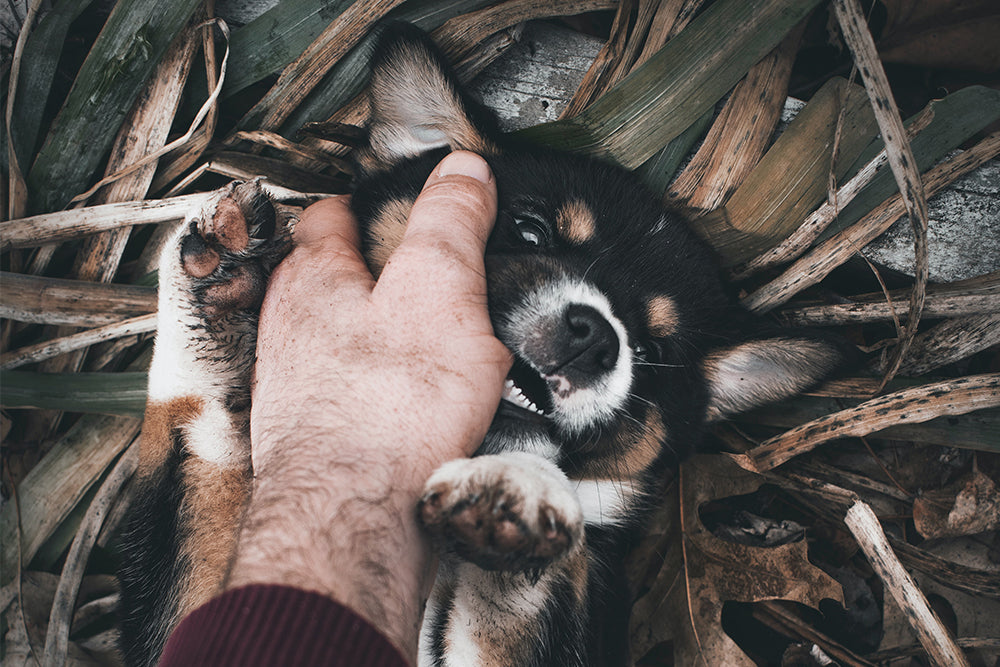Puppy biting is a common behavior issue that most dog owners will face at some point. While it's a natural part of a puppy's development, it can be frustrating and even painful. However, with patience, consistency, and the right techniques, you can teach your puppy to stop biting. In this guide, we'll explore effective strategies to put an end to puppy biting and raise a well-behaved furry companion.
Understanding Puppy Biting
Before diving into the methods to stop puppy biting, it's important to understand why puppies bite in the first place. Puppies use their mouths to explore the world, learn about their environment, and engage with their littermates. Biting is also a way for them to relieve teething discomfort.
It's essential to differentiate between two types of puppy biting:
Play Biting: Puppies often play by nipping and biting, which is usually gentle and non-aggressive. They may not realize the pressure of their bite and can easily be trained to use a softer mouth during play.
Teething Biting: As puppies' teeth grow, they may bite to alleviate the discomfort associated with teething. This type of biting is typically more painful and persistent.
Now, let's dive into the strategies to stop puppy biting.
Socialization and Bite Inhibition
Socialization is a crucial aspect of a puppy's development. By exposing your puppy to various people, animals, and environments, you can help them develop bite inhibition—the ability to control the force of their bite. Here's how to do it:
- Enroll your puppy in a puppy socialization class.
- Arrange playdates with well-behaved, vaccinated dogs.
- Introduce your puppy to different people and settings.
- When your puppy bites too hard during play, yelp or make a high-pitched sound to mimic the response of a littermate. This teaches them that biting too hard results in playtime ending.
Teach Basic Commands
Basic obedience commands like "sit," "stay," and "leave it" are invaluable tools for managing and preventing puppy biting. When your puppy knows these commands, you can redirect their attention and behavior effectively:
Use "leave it" to redirect your puppy from undesirable objects or behaviors.
Reward your puppy for obeying commands with treats and praise, reinforcing good behavior.

Provide Proper Toys
To address teething discomfort and satisfy your puppy's need to chew, provide appropriate chew toys made of rubber or nylon. Encourage your puppy to use these toys instead of your fingers or household items. Freeze toys to soothe sore gums during teething.
Be Consistent
Consistency is key to training any dog's behavior. Ensure that everyone in your household uses the same commands and follows the same rules regarding biting. Mixed signals can confuse your puppy.
Timeouts
If your puppy's biting becomes too aggressive or persistent, you can use timeouts as a consequence. When the puppy bites too hard during play, calmly say "ouch," and then immediately disengage from play for a minute or two. This teaches your puppy that rough play results in the fun ending.
Seek Professional Help
If your puppy's biting behavior doesn't improve with consistent training and socialization, consider seeking the help of a professional dog trainer or behaviorist. They can assess your puppy's specific needs and provide personalized guidance.
Stopping puppy biting requires patience, consistency, and understanding of your pup's developmental stages. Remember that this behavior is natural, but it can be managed and redirected through proper training and socialization. With dedication and the right techniques, you can raise a well-behaved and gentle adult dog who knows how to control their biting impulses. Enjoy the journey of nurturing a loving and respectful bond with your furry friend.


